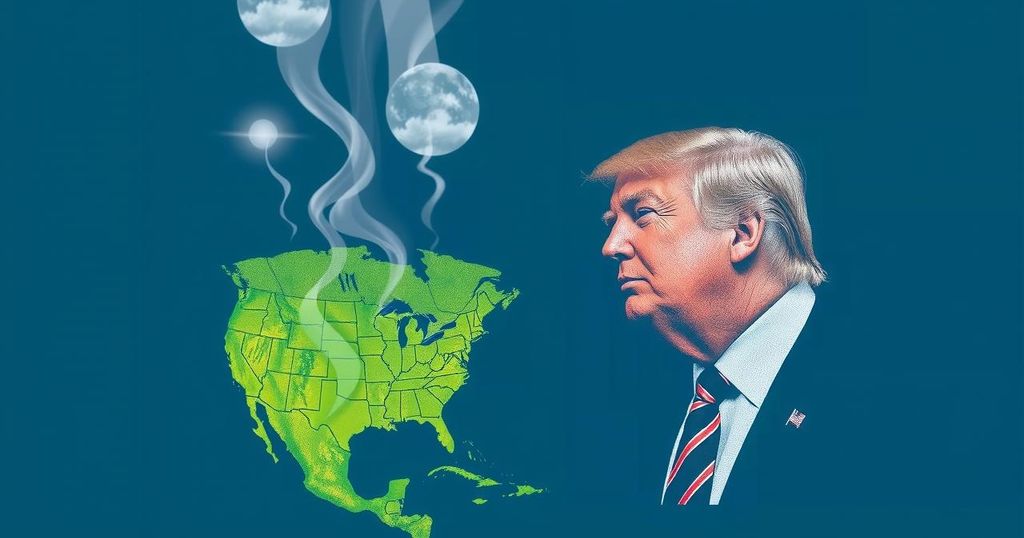Implications of Trump’s Presidency for Global Climate Change Efforts

The re-election of Donald Trump raises concerns over the U.S. commitment to climate change initiatives, particularly regarding the Paris Agreement. His previous actions to rollback environmental regulations and increase fossil fuel production signal a possible regression in global climate progress. Nevertheless, other nations may pursue their climate agendas without U.S. leadership, potentially allowing countries like China to assume a more prominent role in renewable energy innovation.
As Donald Trump embarks on his second term as President of the United States, concerns regarding climate change are intensifying globally. The potential abdication of U.S. leadership in climate initiatives, particularly the Paris Agreement, raises alarms among advocates. Trump’s previous tenure saw significant rollbacks in environmental regulations, and there is apprehension that similar actions may occur once again, worsening an already precarious global climate situation. Trump’s previous administration’s move to exit the Paris Agreement and deregulate fossil fuel industries indicated a severe lack of commitment to emission reductions. His current intent to increase oil drilling and eliminate electric vehicle policies poses a stark threat to the progress achieved in tackling climate change. “The result from this election will be seen as a major blow to global climate action, but it cannot and will not halt the changes underway to decarbonize the economy and meet the goals of the Paris Agreement,” stated Christiana Figueres, the former Executive Director of the UNFCCC. Even if the U.S. retrenches its climate commitments, other nations, especially China, stand poised to fill the leadership void in renewable technologies and climate initiatives. China, already advanced in the realms of cleantech, batteries, and renewable energy, would likely take the lead in global climate leadership if the U.S. retracts its commitments. This trajectory could result in significant economic impacts, with countries like the EU, India, and Brazil potentially benefiting from a rise in green technology investments, previously tied to U.S. initiatives. While setbacks may arise, particularly in terms of climate finance for developing nations like India, the global movement towards clean energy adoption is expected to persist. “The challenge for the rest of the world is to move on and keep deepening action and not be distracted by the theatrics of a climate denier leading the USA,” remarked Dr. Arunabha Ghosh, CEO of the Council on Energy, Environment and Water (CEEW). These sentiments reflect a wider dedication to pursuing sustainable development regardless of U.S. policy shifts. In conclusion, Trump’s second presidency may have substantial implications for climate action globally. While the U.S. may step back from its climate leadership role, other countries are determined to advance their agendas toward sustainable and clean energy solutions. Continued international cooperation and investment in climate initiatives will be vital as the world navigates the complexities of climate change amid shifting political landscapes.
The topic of Donald Trump’s presidency and its implications for climate change revolves around his historical actions and proposed policies. During his first term, Trump withdrew the U.S. from the Paris Agreement and rolled back numerous environmental regulations, which alarmed climate advocates worldwide. The global objective of limiting temperature rise to 1.5°C by the century’s end is severely threatened by the potential dismantling of climate commitments under his leadership. His recent electoral victory signals the possibility of similar actions taking place, further exacerbating the already critical climate crisis.
Trump’s re-election signals a troubling future for U.S. climate policy, potentially undermining global efforts to combat climate change. However, the resilience of the international community towards climate action suggests that progress may continue despite American retrenchment. As nations such as China step into leadership roles, and new economic opportunities arise, the trajectory towards clean energy remains critical for addressing the global climate challenge.
Original Source: carboncopy.info






